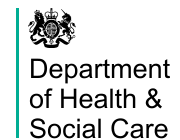Veterinary Vaccine: Ethical and Regulatory Approval
Veterinary vaccine Research & Development involves many regulatory and ethical considerations, and researchers should therefore engage with relevant bodies as early as possible so that the appropriate advice and input can be accommodated within the R&D plan at the right time. There are also several stages in product development where necessary approvals must be obtained in order to proceed with developing and testing a candidate vaccine.
In the UK, the Veterinary Medicines Directorate (VMD), protects and promotes veterinary medicine and product safety by ensuring that veterinary pharmaceutical and biological products meet appropriate standards of safety, quality, performance and effectiveness. Marketing Authorisations (MAs) for veterinary medicines are granted only when a product meets high standards of quality, safety and efficacy.
For broader registration of veterinary vaccines across Europe the European Medicines Agency (EMA) is responsible for the scientific evaluation of centralised marketing authorisation applications (MAA). Once granted by the European Commission, the centralised marketing authorisation is valid in all European Union (EU) Member States, Iceland, Norway and Liechtenstein. EMA has published important information to help users of the centralised procedure prepare for the expected consequences of 'Brexit', including their obligations related to establishment within the European Economic Area (EEA).
This is not intended to be an exhaustive guide, however, listed below are some of the examples of when veterinary regulatory and ethical advice, and approvals that should be sought:
Discovery/Feasibility and Early-Phase Development
- Early Target Product Profile (TPP) considerations - The VMD (and potentially the EMA) can be approached at an early stage, and they can advise on what information will be needed in order to consult the expert group for later approvals. An application for Marketing Authorisation of a new vaccine will contain data on the product’s quality, safety and efficacy. The type of evidence needed in the submission for a VMD or other country Animal Test Certificate for field trials will generally include an outline of production, quality testing, and preliminary safety (and efficacy) in target species.
- Animal work – The use of animals in experiments and testing is regulated under the Animals (Scientific Procedures) Act 1986 (ASPA). Home Office licensure must be obtained at an institutional, personal and project level for the work that is carried out
- Studies in Target Species – Early Discovery work may be carried out in laboratory animals in order to screen a number of potential vaccine candidates and select promising formulations. However, such laboratory animal models are often poor indicators of a vaccine’s safety and protective efficacy within the target species. Therefore, preliminary studies within that target species are often used in veterinary vaccine research in order to identify promising vaccines and reach an early proof of concept. For any such animal studies the be conducted they must be covered by a Project Licence from the Home Office and have received ethical approval through an Animal Welfare and Ethical Review Body (AWERB). This body ensures that all animal studies comply with best practice in order to maximise the welfare of the animals and utilises experimental methods that comply as closely as possible with the 3Rs (replacement, refinement, reduction).
Field Trials
- Animal Test Certificates (ATCs) - You need to apply for an Animal Test Certificate (ATC) in order to carry out a field trial of a new veterinary vaccine. A formal application to the VMD for the ATC must be made for trials evaluating the safety and/or efficacy of the veterinary medicinal product. This application should generally include analytical information such as qualitative and quantitative particulars relating to the product and details of any information relevant to the safety of the product. It may also include preliminary laboratory efficacy data or justification as to why such data cannot be generated within a laboratory environment and thus field efficacy testing is required. Field Trials should generally be conducted according to the VICH Guideline (GL9) on Good Clinical Practice (GCP).
- Use of genetically modified organisms (GMOs) to produce vaccines for testing in animals – The Genetically Modified Organisms (Contained Use) Regulations 2014 from the Health and Safety Executive (HSE) requires the competent authority to maintain a public register of information about all notifications concerning contained use. This contains information on premises and individual contained uses, including the nature of the work to be carried out at the premises, the purpose of individual contained uses and the characteristics of the GMOs involved. This approval and registration can be a critical bottleneck in vaccine R&D, and any researchers should be aware this is regulated by separate legislation.
- It is advisable to seek early advice from the VMD, a regulatory expert or from a ‘Qualified Person’ (QP), who may be able to advise on relevant issues around the desired TPP and licensure, and so reduce the overall time taken to take a product to market.
- VMD Approval – This must be obtained if the field trial is taking place within the UK, for more information visit the link below on VMD approval for ATCs.
- Ethical Approval – This must be obtained to carry out the trial within animals and it will generally involve consultation with and approval from an AWERB.
Useful links
- VMD – Overview
- VMD – Veterinary Medicines Guidance
- VMD – Apply for Product Authorisations
- VMD – Animal Test Certificates
- EMA – Veterinary Medicines
- EMA – Veterinary Research and Development
- EMA – Veterinary Marketing Authorisation
- VICH – Good Clinical Practice
- UK Home Office – Animal Testing and Research
- HSE – GMO Contained Use Regulations
Please note, the UKVN bears no responsibility for the content of external websites.


